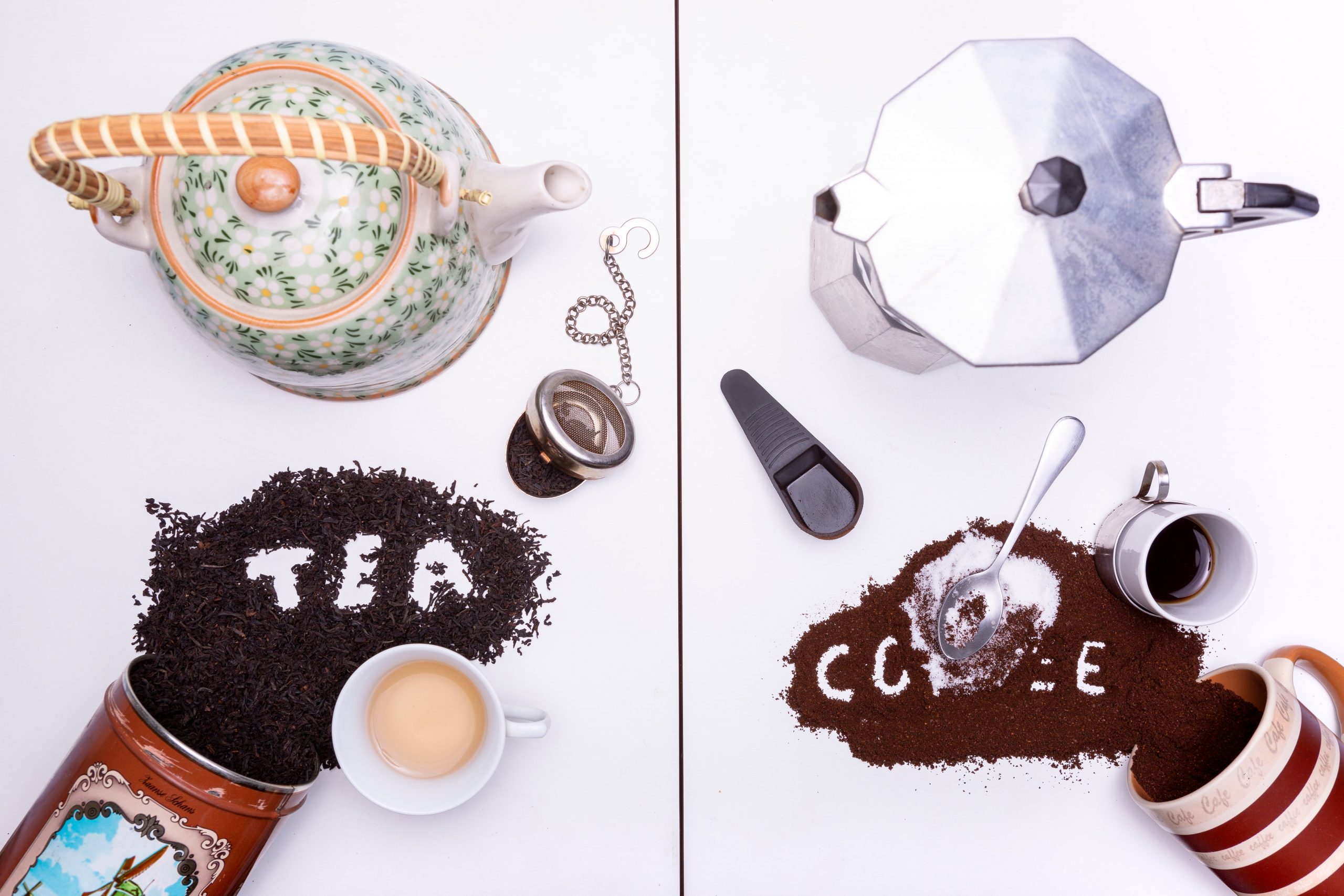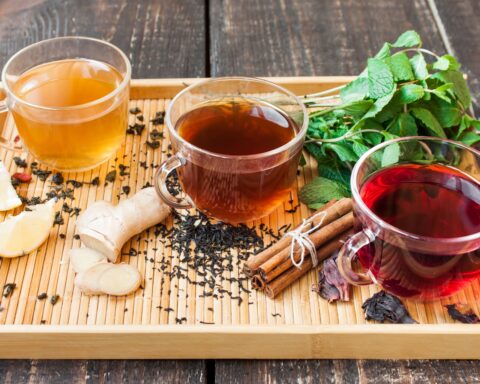Tea and coffee lead in popular drinks. Black tea has the highest demand and comprises78% of tea consumption and production.
The main difference between coffee and tea is their health benefits and taste. Tea was known to cause relaxation after work while improving brainpower and energy during morning hours. Considering both drinks, it is difficult to select one that is healthier. However, some information will be provided to direct you when making decisions.
DifferencesBetween Tea and Coffee
Taste and Caffeine
The chemical composition of coffee has some health concerns, earning a bad reputation. Nutritionists have linked excess caffeine with several issues, including nausea and migraines. However, tea is embraced as medicine, making it an ideal choice for many people with the potential to treat some diseases. The major aids of these drinks will be narrowed down by considering their health benefits, flavor, and chemical composition.
Chemical Composition
Caffeine Content
The ability of this substance to make you alert and focused is an important health benefit. Many people choose coffee as their morning drink. Studies show that coffee contains higher caffeine amounts than tea. Nevertheless, tea leaves have higher inherently occurring caffeine than coffee beans. The differenceis that tea is weakly infused while coffee is intensely brewed. Scientists show that coffee is subjected to greater temperatures which causethe great discharge of caffeine molecules into your cup. However, tea is manufactured at lesser temperatures which fail to extract some caffeine from tea leaves.Further, coffee has greater caffeine levels than tea because its bean is consumed wholly, whereas the tea leaves are eliminated together with the caffeine content. Generally, one cup (8-ounce) of coffee contains 90-100 mg of caffeine. In particular, true qualities like green and black tea contain fluctuating caffeine levels. Green and black teaare the strongest teas and have approximately 70-90 mg of caffeine.However, certain teas like tisanes and herbal tea have no caffeine.
Though coffee has higher caffeine, tea contains other compounds that improve focus and attention. Additionally, several teas have an amino acid called L-theanine, which spikes alertness, providing energy better than coffee. In this case, you can have an added amount without increasing blood sugar after drinking coffee. Further, this amino acid slows caffeine uptake into the blood vessels, which reduces jittery feelings. Also, L-theanine triggers GABA neurotransmitters, which lowers anxiety and causescalmer and smoother alertness than what coffee offers.Moreover, combining moderate caffeine amounts and L-theanine decreases caffeine withdrawal symptoms among drinks. The conclusion drawn from this discussion is that coffee wins when referring to caffeine levels. Nonetheless, tea provides more energy and contains fewer risks.
Taste
Consistent and regular consumption of each beverage defines the health benefits reaped. Provided you love the flavor of a certain beverage, it becomes simple to choose. In most cases, coffee is strongly-flavored and more bitter than tea. Coffee might cause stomach disorders, particularly when overconsumed sinceit contains more acid, has strong tastes, and has astringent flavors than tea. However, tea provides many flavors depending on its grown area and variety. Particularly, oolong and black tea pride in their strong flavors, with choices extending from nutty and earthy to citrusy and fruity. However, green tea has a vegetal taste, whereas white tea contains a higher floral taste. The conclusion depends on the consumers’ preferences. To some, tea is a better choice because of its wider flavors. However, coffee is the best when consideringstrong, malty, and rich flavors. Notably, ensure added sugars or sweeteners are not included in whichever drink that fits you.
Health Benefits of Coffee
Fights Type 2 Diabetes
Daily consumption of coffee helps prevent some serious conditions like type 2 diabetes. Scientists established that caffeine reduces diabetes risks significantly and prevents insulin resistance.
Elevates Physical Performance
Nutritionists reveal that caffeine spikes adrenalin or epinephrine levels in the bloodstream, ensuring quick response and higher energy levels during physical activities. Research indicates that caffeine elevates physical execution by 12%.
Has Essential Nutrients
Coffee has compounds like potassium, manganese, and B vitamins thatcombat cold viruses and promote organ functioning. Studies show that coffee has 11% B vitamins in the daily recommended amounts. A few cups of coffee will help you consume the appropriate amount of nutrients and vitamins.
Tea
May Inhibit Cancer
It has antioxidant compounds that inhibit oxidative stress and exclude free radicals that lead to breast and liver cancer.
Weight Loss
Green tea and other varieties improve fat loss and hasten metabolism. Research found that taking four cups of tea for 2 months reduces weight significantly. Scientists believe that antioxidant EGCG contributes to weight fluctuation, which quickens fat oxidation, allowing more fat removal and burning.
Guards Brain Function
Frequently, consumers have reduced risks of contracting neurological ailments like Parkinson’s and Alzheimer’s. Memory retention and recall benefits are attributed to antioxidants, including flavonoids, catechins, and polyphenols.
Conclusion
Coffee and tea provide health benefits. Considering their flavors, choose one which meets your preferred taste. For people attempting to lower caffeine intake, tea is suitable. This is because several cups of tea cannot equal two cups of coffee in terms of caffeine content, as earlier established. Generally, tea has lower caffeine than coffee, although different tea varieties like yerba mate and matcha contain greater amounts. Further, tea guarantees fewer risks and contains other energy-boosting compounds besides caffeine. Both drinks are beneficial when seeking to boost energy. Notably, you should limit coffee consumption to about 1 or 2 cups daily to escape adverse side effects.
- Eye Spy: Worldwide Eye Color Percentages - April 19, 2024
- Elevate Energy, Soothe Stress, And Peak Performance with The New UNBEETABREW Coffee Sensation - September 21, 2023
- Chef Bob’s Coffee: A Journey Fueled by Passion - July 29, 2023









